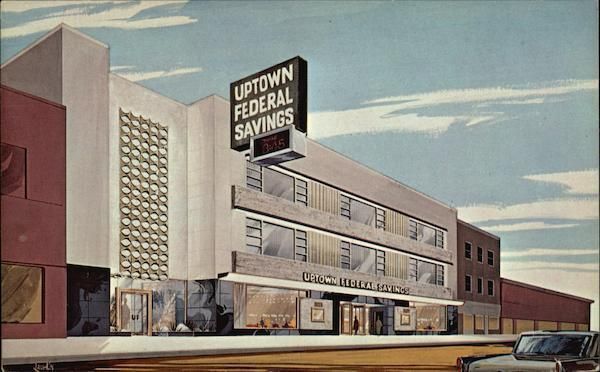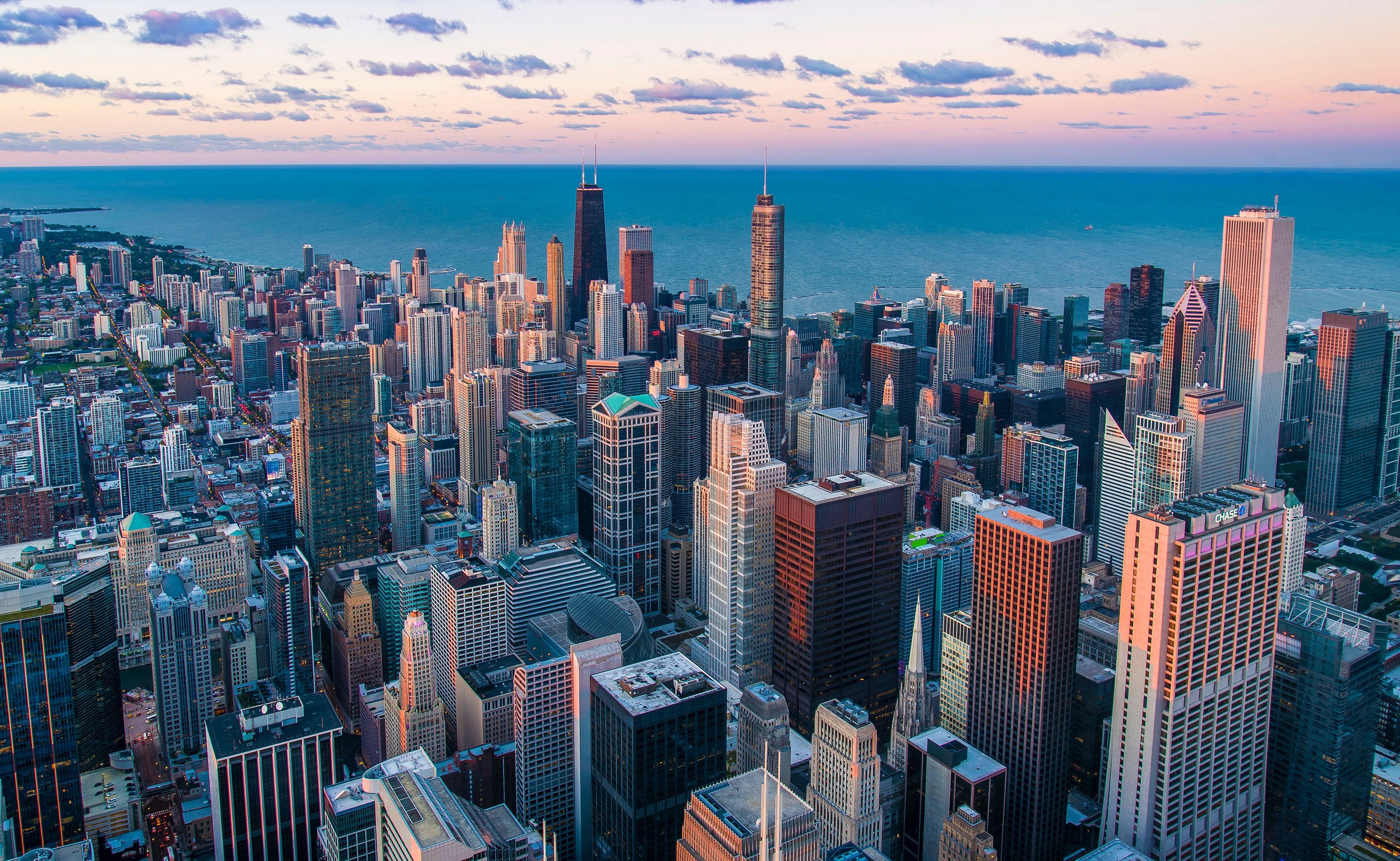
To commemorate UPLC’s 45th anniversary, we have been sharing parts of our history. Today we’re going to talk about two important housing cases UPLC had in the 80s.
In the 60s and 70s, there was a robust community organizing culture in Uptown, and many grassroots groups. Lots of tenant groups organized themselves. Sadly, many of those people ended up dead or in prison, thanks to government suppression. UPLC began as the legal arm of this grassroots organizing, at the end of the 70s.
In the late 60s or early 70s, a high rise building was built at 840 W. Sunnyside in Uptown. It was created with a subsidized mortgage. In exchange for this subsidy, the building had to be for low-income tenants. By the 80s, this building needed a lot of work, and the owner wasn’t executing it. Windows leaked in the rain, there were bugs and rodents, the elevator was always broken, etc.
The building had an interesting history. In the 1970s, the building was occupied almost exclusively by white tenants. Community organizers fought to integrate the building, and by the early 1980s the tenants included Appalachian whites, Hmong and Vietnamese refugees from Southeast Asia, Black people, and Mexicans. The organizers, led by Barbara Schleicher, had to bring these diverse groups together and build enough trust to turn over their rent money for a rent strike. At least half the tenants joined the group. There was no space large enough for everyone to meet, so UPLC Executive Director Alan Mills remembers holding many meetings in a hallway, because the owner refused to allow the tenants to use the building’s community room. Meetings took a long time because all remarks had to be translated at least twice.
The tenants pooled their money and put it in an account. They told the landlord it wouldn’t be released until their demands were met. UPLC represented the group of tenants, defended against several evictions that were filed, and led a team of tenants who negotiated with the landlord’s lawyer. After approximately six months, the owner agreed to make some of the repairs demanded by the tenants. While this was not a total victory, the bottom line is that the building remains a low-income building today.
The community organizing of the tenants at 840 W. Sunnyside led to a broader effort to organize tenants in the surrounding blocks. Uptown Federal Savings & Loan purchased a group of buildings with a plan to evict all of the tenants and flip the buildings. They hoped that this would be enough to change these eight blocks from low-income residents to high-income. Since race and income are highly correlated (an allegation UPLC had to demonstrate to the court), this would also change the racial makeup of Uptown. UPLC’s legal argument was that the bank flipping these buildings would change Uptown from a racially integrated neighborhood to a segregated one, in both intent and effect. Income is not a protected class, but race is, under the Civil Rights Act, so UPLC charged a violation of that law.
The tenants of the impacted buildings, joined by many of their neighbors, formed a community group known as WASH, which stood for Wilson, Agatite, Sunnyside, Hazel. These Uptown streets defined the eight block grid which the bank was trying to flip. WASH were the plaintiffs in the lawsuit against the bank.
UPLC filed a federal case. There were settlement discussions with organizers, UPLC attorneys, and the bank’s attorneys. The bank agreed to some concessions, but it was ultimately a weak victory. However, during the delay caused by this case, Uptown Federal Savings and Loan, like many S & L’s nationwide, went bankrupt, and, in the end, sold all of the buildings. Voice of the People bought a number of them, and those remain low-income buildings today.
Community organizing needs a legal arm. As with so much of UPLC’s work, legal work alone wasn’t strong enough to gain a victory. But joined with a strong community organizing effort, low-income housing was saved. The people are always stronger, together.

